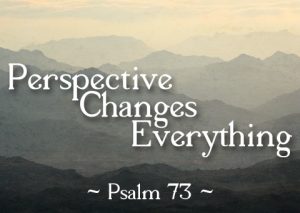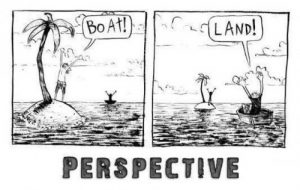
Wisdom-Trek / Creating a Legacy
Welcome to Day 1096 of our Wisdom-Trek, and thank you for joining me.
I am Guthrie Chamberlain, Your Guide to Wisdom
Perspective Changes Everything – Wisdom Wednesday

Wisdom – the final frontier to true knowledge. Welcome to Wisdom-Trek! Where our mission is to create a legacy of wisdom, to seek out discernment and insights, and to boldly grow where few have chosen to grow before. Hello, my friend, I am Guthrie Chamberlain, your captain on our journey to increase wisdom and create a living legacy.
Thank you for joining us today as we explore wisdom on our 2nd millennium of podcasts. This is Day 1096 of our trek, and it is Wisdom Wednesday. Creating a Biblical worldview is important to have a proper perspective on today’s current events.
To establish a Biblical worldview, you must also have a proper understanding of God’s word. Especially in our western cultures, we do not fully understand the Scriptures from the mindset and culture of the authors. In order to help us all have a better understanding of some of the more obscure passages in God’s Word, we are investing Wisdom Wednesday reviewing a series of essays from one of today’s most prominent Hebrew scholars Dr. Micheal S. Heiser. He has compiled these essays into a book titled “I Dare You Not to Bore Me with the Bible.”
Our perspective about a situation or circumstance creates our reality, which may not sync with actual reality. In today’s essay, we will explore passages that cover…
Perspective Changes Everything

The question many Christians and Bible scholars debate about surrounds eschatology or future events that is the end times. Is the book of Revelation a linear chronology of distant future events, or does the book describe the Roman persecution of Christians and Rome’s destruction of the temple events that occurred in John’s lifetime? The first view opts for a mid-AD 90s authorship (long after the temple was destroyed), the second supports a pre-AD 70s authorship (when the temple was still standing). Each of these readings is complicated by Revelation 11:1-2,“Then I was given a measuring stick, and I was told, “Go and measure the Temple of God and the altar, and count the number of worshipers. But do not measure the outer courtyard, for it has been turned over to the nations. They will trample the holy city for 42 months.”

Taken literally, these verses indicate the Jerusalem temple still stands—apparent proof that Revelation was written before AD 70. If so, the idea that John is describing the Roman persecution and invasion, empowered by Satan and his hatred for the Church, must be valid. However, while the defense of this view takes this passage literally, most people who prefer to see Revelation written before AD 70 read the rest of Revelation symbolically, matching John’s descriptions to some feature of the Roman Empire and its Caesars.
Those who read Revelation in terms of distant future events often point to the mid-90s authorship. They prefer a symbolic reading of Revelation 11, a departure from their preference for taking the rest of Revelation quite literally. Even to the point of describing futuristic military weaponry in John’s visions.

Who is the literalist now? It’s difficult to be consistent in the book of Revelation.
The early church father Clement of Rome offers us clues for understanding how this passage might be understood. Clement wrote long after the Jerusalem temple had been destroyed, but he used the present tense when speaking of the temple (1 Clement 40-41). He does this to strike an analogy between the orderly worship of the temple in times past with a current concern about worship. The same may be true of Revelation 11:1-2. It’s not unusual for biblical writers to speak of a past event in language that sounds contemporary. In other words, the temple might be long gone, but references to it serve some other literary or theological purpose taking center stage in the writer’s mind. Nonetheless, this doesn’t exclude the possibility of interpreting Revelation in light of events in Rome. It just proves that neither approach can be fully accepted.
When reading a complicated book like Revelation, it’s helpful to address where views deviate in their interpretive approach. It might be more revealing than we ever expected. When it comes to the study of eschatology, it is best to realize that there is much we do not know. Therefore, we should not become overly dogmatic or cause divisions within God’s Kingdom over such issues.
That will conclude our essay for this week. Next Wisdom Wednesday will be our final essay from Dr. Heiser’s book. The final essay is titled “Constantine, Conspiracy, and the Canon.” I believe you will find this another interesting topic to consider as we build our Biblical worldview.
Tomorrow we will continue with our 3-minute humor nugget that will provide you with a bit of cheer and help you to lighten up and live a rich and satisfying life. So encourage your friends and family to join us and then come along with us tomorrow for another day of our Wisdom-Trek, Creating a Legacy.

If you would like to listen to any of our past 1095 treks or read the Wisdom Journal, they are available at Wisdom-Trek.com. I encourage you to subscribe to Wisdom-Trek on your favorite podcast player so that each day’s trek will be downloaded automatically.
Thank you for allowing me to be your guide, mentor, and most of all your friend as I serve you through the Wisdom-Trek podcast and journal.
As we take this trek together, let us always:
- Live Abundantly (Fully)
- Love Unconditionally
- Listen Intentionally
- Learn Continuously
- Lend to others Generously
- Lead with Integrity
- Leave a Living Legacy Each Day
I am Guthrie Chamberlain reminding you to Keep Moving Forward, Enjoy Your Journey, and Create a Great Day Everyday! See you tomorrow!
Leave a Reply